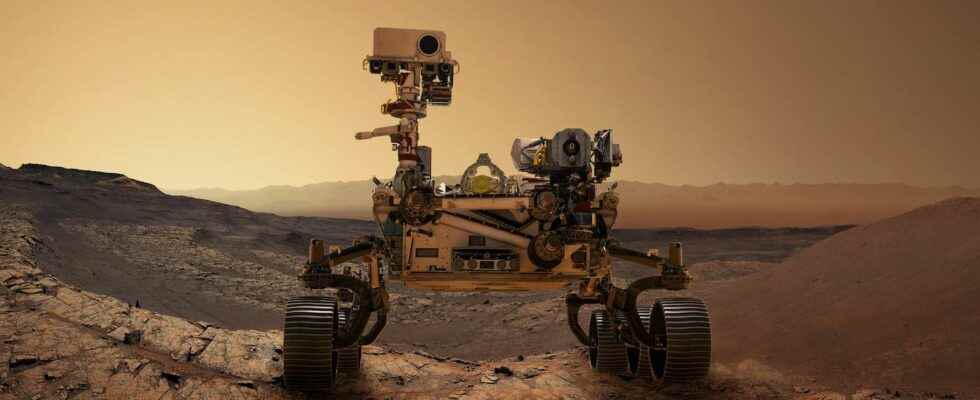The picture is good. But when the sound isn’t there, there’s no denying it, something is really missing. And it is this something more about Mars that Perseverance brings us thanks to the sounds that it has been recording for more than a year on the surface of the Red Planet.
More than a year ago, NASA shared the first sounds recorded by its rover Perseverance as it moved across the surface of Mars. Bringing Mars exploration into a new era. Because beyond the fact that hearing a machine rolling on another world is enough to give shivers, the analysis of these sounds is of real interest for planetary scientists. Especially for those who want to expand their knowledge ofatmosphere of the Red Planet and its interactions with the surface.
Perseverance has, since the beginning of its mission, thus recorded hours and hours of sounds. Of which the researchers now offer a selection. A kind of playlist Martian which condenses the sound environment that exists on Mars. And it turns out that most of the time, the planet is silent. The sounds of nature are rare and extremely discreet. With the notable exception of wind. “It’s so quiet that we thought, at one point, that the microphone was broken”ironically the researchers when presenting their first results at the congress of theAcoustical Society of America.
Valuable scientific information
More seriously, the researchers were surprised by the sudden changes taking place in the Martian atmosphere. While the recordings sound flat calm, violent gusts can suddenly unleash.
The Perseverance recordings also reveal that the soundscape of the Red Planet changes with the seasons. In winterwhen the carbon dioxide (CO2) freezes on the side of the polar caps, the density of the atmosphere changes. The sound intensity varies by approximately 20%. And the CO2 also attenuates high-pitched sounds with distance.
While NASA had displayed its skepticism at the idea of carrying out sound recordings on Mars, Perseverance proves that it was worth it. Even if the scientists believe that such recordings could prove to be even richer in lessons on planets or moons with denser atmospheres. As Venus or Titan. The sound waves interact more strongly and propagate further. An idea for future missions…
Interested in what you just read?
